After Samsung has officially unveiled their latest flagship, the Samsung Galaxy Note 3, Apple has also officially unveiled the latest generation of iPhones, the iPhone 5S and 5C. Samsung and Apple are the leading smartphone manufacturers for the past few years and they have been constantly in war, not only in law suits, but in determining who has the best smartphone. Now that each of their respective high end flagship smartphones for the year 2013 have been revealed, let’s compare them side by side and find out which do you think you should get.
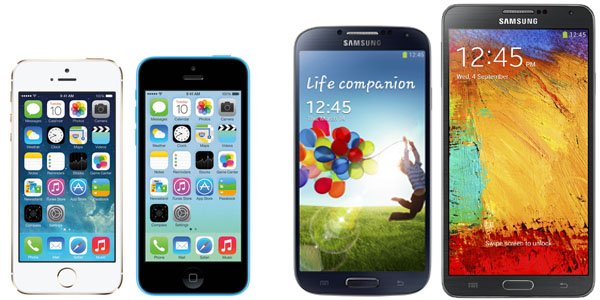
Specifications Comparison
So how does the new iPhone 5s/5c stack up against their Android competition, the Samsung Galaxy S4 and Note 3? Let’s compare their specifications side by side.
| Specifications | iPhone 5s | iPhone 5c | Samsung Galaxy Note 3 | Samsung Galaxy S4 |
|---|---|---|---|---|
| Dimensions | 123.8mm x 58.6mm x 7.6mm | 124.4mm x 59.2mm x 9mm | 151.2mm x 79.2mm x 8.3mm | 136.6mm x 69.8mm x 7.9mm |
| Weight | 112 grams | 132 grams | 168 grams | 130 grams |
| Display | 4-inch IPS LCD at 640×1136, 326 ppi Gorilla Glass | 4-inch IPS LCD at 640×1136, 326 ppi | 5.7-Inch Super AMOLED, 1080×1920 386 ppi, Gorilla Glass 3 | 5-inch Super AMOLED, 1080×1920 441 ppi, Gorilla Glass 3 |
| Storage Internal | 16GB/32GB/64GB | 16GB/32GB | 32GB/64GB | 16GB/32GB/64GB |
| Memory | 2GB (TBC) | 1GB | 3GB RAM | 2GB RAM |
| Storage Expandable | None | None | microSD up to 64GB | microSD up to 64GB |
| Wireless Connectivity | GRPS, EDGE HSDPA 42Mbps, HSUPA 5.76Mbps, LTE 100Mbps WiFi 802.11 a/b/g/n, dual band, WiFi hotspot Bluetooth 4.0 A2DP | GRPS, EDGE HSDPA 42Mbps, HSUPA 5.76Mbps, LTE 100Mbps WiFi 802.11 a/b/g/n, dual band, WiFi hotspot Bluetooth 4.0 A2DP | GRPS, EDGE, NFC, InfraRed HSDPA 42Mbps, HSUPA 5.76Mbps, LTE 100Mbps WiFi 802.11 a/b/g/n, dual band, WiFi hotspot, DLNA, WiFi Direct Bluetooth 4.0 A2DP, EDR, LE | GRPS, EDGE, NFC, InfraRed HSDPA 42Mbps, HSUPA 5.76Mbps, LTE 100Mbps WiFi 802.11 a/b/g/n, dual band, WiFi hotspot, DLNA, WiFi Direct Bluetooth 4.0 A2DP, EDR, LE |
| Camera Rear | 8 megapixels at 3264×2448, AF, Dual LED True Tone 1.5 µm pixel size, simultaneous HD video, HDR 1080p@30fps, 720p@120fps, advance video stabilization | 8 megapixels at 3264×2448, AF, LED Flash 1.4 µm pixel size, simultaneous HD video, HDR 1080p@30fps, video stabilization | 13 megapixels at 4128×3096, AF, LED dual shot, simultaneous HD video, HDR 2160p@30fps, 1080p@60fps | 13 megapixels at 4128×3096, AF, LED dual shot, simultaneous HD video, HDR 1080p@30fps, dual video rec |
| Camera Front | 1.2 megapixels, 720p @ 30fps | 1.2 megapixels, 720p @ 30fps | 2 megapixels, 1080p@30fps | 2 megapixels, 1080p@30fps, dual video call |
| Operating System | iOS 7 | iOS 7 | Android v4.3 Jelly Bean | Android v4.2.2 Jelly Bean |
| Chipset | Apple A7 64-bit | Apple A6 | Qualcomm Snapdragon 800 | Exynos 5 Octa 5410 |
| Processor | Dual Core 1.7GHz | Dual Core 1.3GHz | up to 2.3GHz Quad Core Krait 400 | 1.6GHz Quad Core Cortex-A15 with 1.2GHz Quad Core Cortex-A7 |
| Graphics Processor | Apple A7/newer PowerVP* -TBC | PowerVR SGX 543MP3 | Adreno 330 (LTE model) | PowerR SGX 544MP3 |
| Sensors | Accelerometer, gyro, proximity, compass | Accelerometer, gyro, proximity, compass | Accelerometer, gyro, proximity, compass, barometer, temperature, humidity, gesture | Accelerometer, gyro, proximity, compass, barometer, temperature, humidity, gesture |
| GPS | with A-GPS and GLONASS | with A-GPS and GLONASS | with A-GPS and GLONASS | with A-GPS and GLONASS |
| Battery | Li-Po 1570 mAh (5.96 Wh) Non-removable | Li-Po 1510 mAh (5.73 Wh) Non-removable | Li-Ion 3200 mAh | Li-Ion 2600mAh |
| Colors | Black, White, Gold | White, Blue, Green, Yellow, Pink | Black, White, Pink | White Frost, Black Mist, Arctic Blue |
iOS 7 vs Android Jelly Bean
First of all, comparing an iPhone with an Android phone is like comparing Apples to Oranges. An Apple has a particular set of vitamins that it only unique with an Apple, same goes with Oranges. But there are also some vitamins that they both commonly share. This is also true to iOS 7 and Android Jelly Bean operating systems.
Because there is a difference in the operating system that runs these smartphones, I personally can’t conclude that the iPhone 5s/5c is better than the Samsung Galaxy S4/Note 3, or the iOS 7 operating system is better than Android Jelly Bean. Why, it’s because only you can decide which the better one is. The better OS is the one that you are most comfortable using. It’s the one that best works for you, the meets your needs and the one that can help you become more productive.
The Design
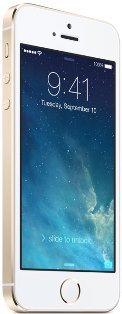 Moving on, the iPhone 5s still features the same aluminum and premium design that the iPhone 5 has. It’s true that when you hold an iPhone in your hand, you can tell that this is no ordinary phone. How do I know? Because this is what I said when I held our iPhone 5 for the first time. “This is something premium”. But the design is not without flaws. The aluminum casing is not scratch resistant and is very prone to bends and chip-offs.
Moving on, the iPhone 5s still features the same aluminum and premium design that the iPhone 5 has. It’s true that when you hold an iPhone in your hand, you can tell that this is no ordinary phone. How do I know? Because this is what I said when I held our iPhone 5 for the first time. “This is something premium”. But the design is not without flaws. The aluminum casing is not scratch resistant and is very prone to bends and chip-offs.
Meanwhile, the Samsung Galaxy Note 3 and Galaxy S4, even though they don’t have an aluminum casing, still feel sturdy and solid. I know some would think otherwise, saying that they are only covered in cheap plastic but that doesn’t really bother me. At least, Samsung placed a metal rim on the sides of the Galaxy Note 3.
I’m not too impressed with the design of the Samsung Galaxy S4 and Galaxy Note 3. But I don’t think they are ugly or cheap as well. Meanwhile, although the iPhone 5s has a touch of premium craftsmanship, I’m a bit disappointed that they still look the same with the iPhone 5. Only the colors have changed. Whereas with the design of the iPhone 5c, it looks like it’s Nokia Lumia-inspired… colorful and all “plasticky”.
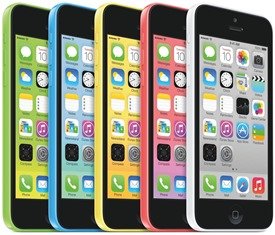
What’s Under the Hood
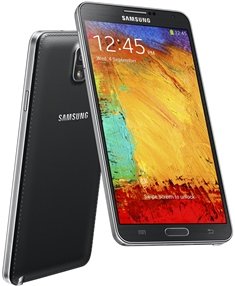 Looking at the specifications table above, it looks like both the Samsung Galaxy Note 3 and Galaxy S4 have the better and more attractive set of specifications, vs the iPhone 5s and iPhone 5c. Personally I don’t like a 4-inch display in a phone, because they are too small for me and I am having a hard time typing with them. So I prefer larger display, and other than typing, it’s much easier to read, navigate, browse websites, play games, watch videos, etc, in a larger screen.
Looking at the specifications table above, it looks like both the Samsung Galaxy Note 3 and Galaxy S4 have the better and more attractive set of specifications, vs the iPhone 5s and iPhone 5c. Personally I don’t like a 4-inch display in a phone, because they are too small for me and I am having a hard time typing with them. So I prefer larger display, and other than typing, it’s much easier to read, navigate, browse websites, play games, watch videos, etc, in a larger screen.
Not only in the display size that the Samsung Galaxy S4 and Note 3 have the advantage. They also have expandable memory, more sensors, more connectivity options, larger megapixel camera. Speaking of camera, even though Apple claimed that the iPhone 5s has a better iSight camera compared to its predecessors (since it’s now using a 1.5 µm pixel size), it’s still only an 8 megapixel camera. And that’s how people will look at it. Most of the consumers are not really techie people and are not very keen with this kind of stuff. For them a 13 megapixel camera is better than an 8 megapixel camera.
Same goes with the processor and graphics processor, people will think that a quad core processor is better than a dual core processor. As this point, you might be wondering how come the iPhone 5s and iPhone 5c still runs smoothly, and is very much fluid despite being powered by a dual core processor only. Answer? It’s because the iOS is very much optimized to run with the current hardware that they have. So for now, the iPhone doesn’t need a quad core processor, specially now that they have implemented a 64-bit system. But perhaps maybe in the future.
Meanwhile, comparing the iPhone 5c vs Samsung Galaxy S4 is like comparing the aging iPhone 5 with Galaxy S4. Why? The iPhone 5c has basically the same specs with that of the iPhone 5. It’s like Apple has deceivingly covered the iPhone 5 with a colorful plastic shell and sold them at a cheaper price than the 5s. The battle between the iPhone 5 and Galaxy S4 has been concluded many months ago by the consumers, and I think the results would be the same with iPhone 5c vs Samsung Galaxy S4 as well.
Read also: Why the iPhone 5c is a Disappointment and a Deceptive Product
So Which One Will You Get?
The iPhone 5s, iPhone 5c, Samsung Galaxy Note 3 and Galaxy S4 are truly flagship smartphone, each having their own unique set of features and specifications. Like us people, they are also unique from one another and they each have their own pros and cons.
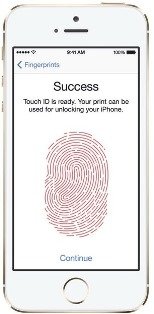 But if you were to choose from the four of them, which one will you get? I’m not an iPhone-hater or a diehard Android fanatic. But like what I said earlier, the best smartphone is the one that best meets your needs. It’s the one that you are very much comfortable using. And it’s the one that you will be most productive.
But if you were to choose from the four of them, which one will you get? I’m not an iPhone-hater or a diehard Android fanatic. But like what I said earlier, the best smartphone is the one that best meets your needs. It’s the one that you are very much comfortable using. And it’s the one that you will be most productive.
The iPhone 5s does seem attractive, specially with the “innovatively” fingerprint scanner called Touch ID. And for me that’s the only exciting feature about it. But for me, most of the features that I am looking for in a phone can be found in the Samsung Galaxy Note 3. And those features outweigh the Touch ID or any features that the iPhone 5s have.
How about you? Go ahead and cast your vote below.
